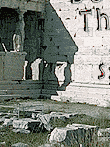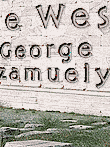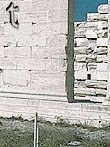 |
 |
 |
 |
 |
 |
 |
 |
 |
 |
June 1, 2000Clinton in EuropeBill Clinton is on a trip – promised to be his last – to Europe. This made-for-CNN event comes prepackaged with recycled headlines about the unshakable strength of the transatlantic alliance, the "unacceptability" of Slobodan Milosevic's Serbia, Bill Clinton's legacy, the viability of the Third Way. Yet it already all seems so dated now. It is not just the tedious disputes that are so hard to keep track of. Americans complain about Europeans unfairly restricting imports of bananas, hormone treated beef, and genetically-modified foods. They also complain about European government aid for the Airbus consortium and a new EU aircraft noise law that allegedly discriminates against US equipment makers. Europeans turn around and complain about a US law that gives American exporters $4 billion a year in tax breaks. |
|
|
German Foreign Minister Joschka Fischer elaborated on this in greater detail in a major speech recently. "Will a majority of member states take the leap into full integration and agree on a European constitution?," he asked. "Or, if that doesn't happen, will a smaller group of member states take this route as an avant-garde, ie will a center of gravity emerge comprising a few member states which are staunchly committed to the European ideal and are in a position to push ahead with political integration?" Clearly Fischer very much prefers the "avant-garde" approach. "One possible interim step on the road to completing political integration could then later be the formation of a center of gravity. Such a group of states would conclude a new European framework treaty, the nucleus of a constitution of the federation. On the basis of this treaty, the federation would develop its own institutions, establish a government which within the EU should speak with one voice on behalf of the members of the group on as many issues as possible, a strong parliament and a directly elected president. Such a center of gravity would have to be the avant-garde, the driving force for the completion of political integration and should from the start comprise all the elements of the future federationů.The question of which countries will take part in such a project, the EU founding members, the euro-11 members or another group, is impossible to answer today." I will hazard a guess. Germany and France will be the "hard core" of the "hard core." What is this really all about? Europe's voters fear for their high standard of living should millions of impoverished East and Central Europeans suddenly become beneficiaries of the EU. Europe's elites fear that the accession of new member-states will "dilute" Europe. The European Union will be so preoccupied trying to integrate these countries that there will be no time left over to play Great Power politics. Hence the Fischer solution: Either wait for ever for EU institutional reforms before any new country can join. Or, alternatively, change the system in such a way that there will be two EUs – a real one and a meaningless one. Kosovo really was a failure. Not because Slobodan Milosevic still rules in Belgrade. But, more important, it failed to put an end to EU political ambitions. Please Support Antiwar.comA contribution of $25 or more gets you a copy of Justin Raimondo's Into the Bosnian Quagmire: The Case Against US Intervention in the Balkans, a 60-page booklet packed with the kind of intellectual ammunition you need to fight the lies being put out by this administration and its allies in Congress. Send contributions to Antiwar.com or
Contribute Via our Secure Server |

